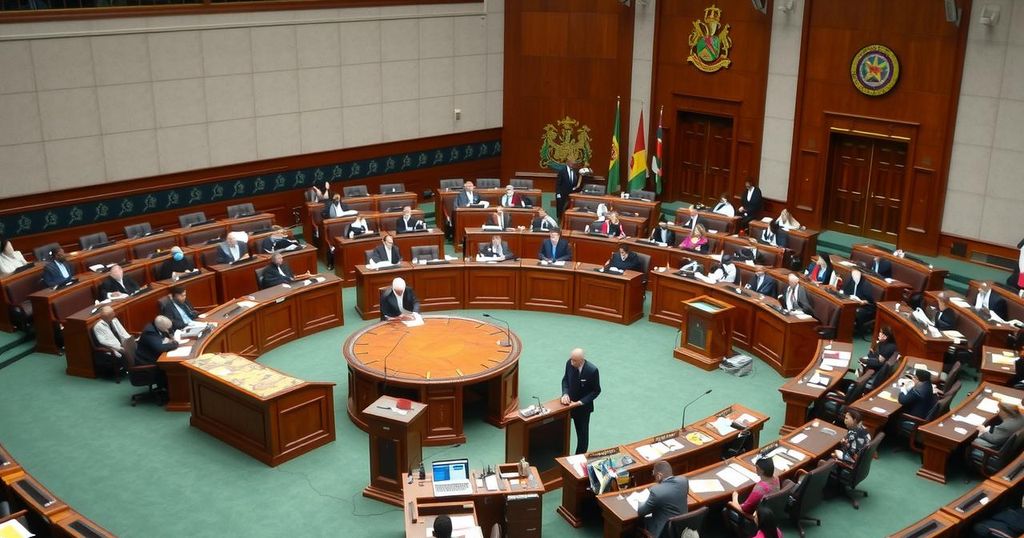Mozambique inaugurated its new parliament amid severe opposition protests and boycotts following disputed elections. The ruling Frelimo party’s victory has led to calls for strikes and demonstrations led by opposition leader Venancio Mondlane, who claims electoral fraud. The atmosphere in the capital was tense, with significant unrest reported since the election, prompting calls for unity from the new president, but skepticism remains high as dissent continues.
On a day marked by opposition-led protests and boycotts, Mozambique inaugurated its new parliament, with approximately 250 lawmakers sworn in amidst a strikingly quiet capital. Following contentious elections in October, where the ruling Frelimo party secured a significant victory, opposition parties expressed their dissent by refusing to accept the results and choosing to boycott the ceremony. Opposition leader Venancio Mondlane, claiming electoral manipulation, called for a national strike coinciding with the inauguration of President Daniel Chapo, whom he accuses of having illegitimately obtained power.
The atmosphere in the capital city was notably subdued, reflecting the discontent among the populace. Many establishments remained closed, and barricades were erected by protesters in a bid to halt movement throughout the city center. Amidst heightened security measures, including military police surrounding the parliament, the inauguration went forward, underscoring the divisions within the nation.
In statements prior to the inauguration, President Chapo emphasized the necessity of unity and stability within Mozambique, expressing a desire for collaborative governance. However, Mondlane criticized the process, asserting that participation in parliament by Frelimo is a betrayal of democratic principles, as he believes the election was not conducted in a fair manner. The call for dialogue was met with skepticism, as Mondlane has reportedly been excluded from important discussions regarding the political impasse.
The political climate in Mozambique has been intensely polarized following the October elections, where the ruling Frelimo party was declared the winner despite claims from opposition leaders that the results were manipulated. The political situation has escalated dramatically, with opposition members calling for protests, boycotts, and strikes in response to what they perceive as fraudulent electoral practices. The recent riots and clashes have further complicated an already tense environment, with significant repercussions on the national economy and civil order. Popular opposition leader Venancio Mondlane has emerged as a central figure in the dissent against the current government, representing many of Mozambique’s marginalized groups, particularly the youth.
The inauguration of Mozambique’s new parliament comes at a time of significant unrest and division in the country. Opposition leaders have denounced the election results, calling them fraudulent, and their subsequent protests and boycotts have illustrated a deep-seated dissatisfaction among the populace. As President Chapo seeks to promote unity and stability, the legitimacy of his administration remains in question, with ongoing calls for dialogue and reconciliation overshadowed by the realities of recent violent confrontations.
Original Source: www.aljazeera.com






